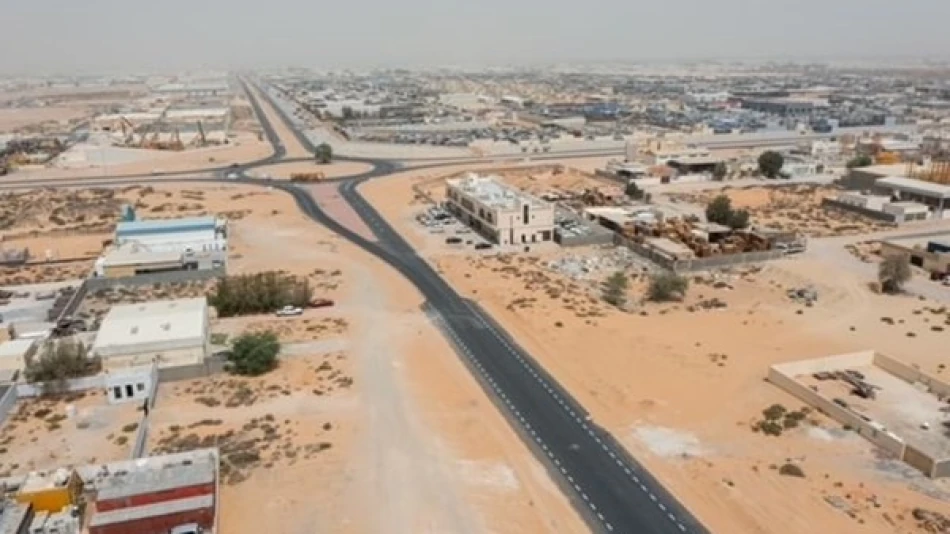
Transforming Landscapes: New Road Project Boosts Connectivity in Alsajjah
Sharjah Accelerates Industrial Growth with New 4.6km Road Network in Al-Saja'a
The Sharjah Roads and Transport Authority has launched a strategic infrastructure project that signals the emirate's commitment to positioning itself as a major industrial hub in the UAE. The new 4.6-kilometer road network in the Al-Saja'a Industrial Area represents more than just concrete and asphalt—it's a calculated move to capture greater market share in the Gulf's competitive industrial landscape.
Strategic Infrastructure Investment
The project involves constructing a comprehensive network of single-lane roads spanning 4.6 kilometers, designed to enhance traffic flow and accessibility within one of Sharjah's key industrial zones. Engineer Youssef Khamis Al-Othmani, Chairman of the Roads and Transport Authority, emphasized that this development directly supports the urban and industrial growth trajectory the region is experiencing.
The timing is particularly significant as the UAE's non-oil economy continues its expansion, with industrial sectors playing an increasingly vital role in economic diversification strategies across all seven emirates.
Economic Context and Market Implications
Positioning Against Regional Competition
This infrastructure push comes as Sharjah faces intensifying competition from neighboring emirates and regional industrial centers. Dubai's Jebel Ali Free Zone and Abu Dhabi's industrial cities have long dominated the UAE's manufacturing landscape, but Sharjah's strategic investments in connectivity infrastructure suggest an aggressive play for market share.
The Al-Saja'a Industrial Area has emerged as a cost-effective alternative for manufacturers seeking proximity to Dubai's markets without the premium real estate costs. Enhanced road connectivity directly addresses one of the key concerns for industrial investors: logistics efficiency.
Investment Climate Signals
For investors and industrial developers, this project sends a clear signal about Sharjah's commitment to supporting manufacturing and logistics operations. The authority's proactive approach to infrastructure development ahead of demand—rather than reactive expansion—indicates sophisticated urban planning that could attract long-term industrial commitments.
Technical and Logistical Advantages
Engineer Sulaiman Abdulrahman Al-Hajri, the Authority's Director of Roads Affairs, highlighted that the new network will connect Al-Saja'a directly to the main dual carriageway via Junction 8 on Al Dhaid Road. This connection is strategically important as it provides industrial facilities with improved access to major transportation arteries linking Sharjah to other emirates and international borders.
The single-lane design, while seemingly modest, reflects practical considerations for industrial traffic patterns, where heavy vehicles require different infrastructure specifications compared to passenger vehicle networks.
Broader Economic Implications
This development aligns with the UAE's broader economic strategy of reducing dependence on oil revenues through industrial diversification. Sharjah, traditionally known more for its cultural initiatives, has been quietly building its industrial credentials over the past decade.
The infrastructure investment also reflects confidence in sustained economic growth and industrial demand, particularly as global supply chains continue reshaping following recent disruptions. Companies seeking to establish manufacturing bases closer to Middle Eastern and African markets may find Sharjah's improved connectivity increasingly attractive.
For the construction and logistics sectors, projects like this represent tangible opportunities, while the broader business community benefits from improved industrial capacity that can support various economic activities across the emirate.
Most Viewed News

 Layla Al Mansoori
Layla Al Mansoori






